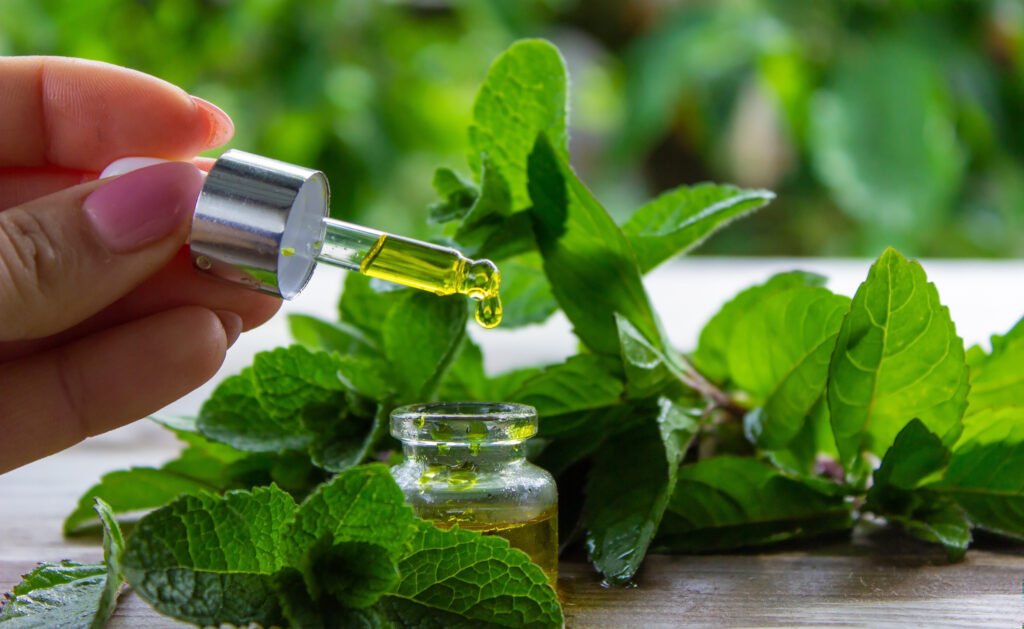
Are you struggling with gastritis pain and wondering what solutions or natural gastritis relief diet or plan might help?
Have you ever asked yourself, “What oil is best for gastritis?” or “What helps gastritis pain immediately?”
If so, you’re not alone.
Gastritis, characterized by inflammation of the stomach lining, can cause discomfort and disrupt daily life. Fortunately, there’s growing interest in natural remedies like essential oils that may offer relief.
Essential oils are concentrated extracts derived from plants. They’ve gained attention for their potential therapeutic benefits in various health conditions.
Recently, researchers have explored their efficacy in managing gastritis symptoms.
While not a standalone treatment, essential oils can complement other approaches, such as dietary changes and supplements, in managing gastritis.
Using essential oils for gastritis relief can be simple inhalation, topical application, or ingestion (under guidance) are common methods.
However, it’s crucial to note that not all essential oils are suitable for everyone. Different oils may produce varied reactions in individuals.
Seeking expert advice is paramount, especially for those with sensitive stomachs or existing medical conditions.
When incorporating supplements into your regimen, quality matters. Opting for reputable brands ensures purity and potency, minimizing potential risks.
Remember, while essential oils and supplements can support gastritis management, they’re not substitutes for professional medical advice or prescribed treatments.
Always consult healthcare professionals before making significant changes to your healthcare routine.
Before we go into details of how to use essential oils for gastritis, let’s take a second to touch on what they are, common options and choices available and factors to consider when choosing the best essential oil for this purpose – treating gastritis.
Let’s dive in!
What Are Essential Oils?
Essential oils are highly concentrated extracts derived from plants. They capture the plant’s fragrance and flavor, as well as its beneficial properties.
These oils are extracted through various methods such as distillation or cold pressing.
Each essential oil contains a unique combination of active compounds that give it specific therapeutic properties.
For example, lavender oil is known for its calming and soothing effects, while peppermint oil is often used for its invigorating and digestive benefits.
Essential oils have been used for centuries in traditional medicine practices for their healing properties. They can be used in aromatherapy, where the aroma of the oil is inhaled, or topically, where the oil is applied to the skin.
As we mentioned earlier, some essential oils can also be ingested, although this should be done under the guidance of a qualified healthcare professional, as not all oils are safe for internal use.
7 Best Essential Oils For Gastritis
When considering essential oils for gastritis relief, it’s essential to choose oils known for their soothing and anti-inflammatory properties.
Here are some of the best essential oils for managing gastritis:
- Peppermint Oil

Peppermint oil is well-regarded for its ability to alleviate digestive discomfort. It can help relax the muscles of the gastrointestinal tract, reducing cramping and discomfort associated with gastritis.
- Lavender Oil
Lavender oil is prized for its calming and anti-inflammatory properties. It can help soothe the stomach lining and alleviate stress, which may exacerbate gastritis symptoms.
- Ginger Oil
Ginger oil is known for its digestive benefits, including reducing nausea and inflammation. It can help ease indigestion and promote overall digestive health, making it beneficial for gastritis relief.
- Chamomile Oil
Chamomile oil has anti-inflammatory and anti-spasmodic properties, making it effective in soothing digestive issues like gastritis. It can help reduce inflammation in the stomach lining and ease discomfort.
- Fennel Oil
Fennel oil is commonly used to relieve digestive problems, including gastritis. It can help reduce bloating, gas, and inflammation in the stomach, promoting better digestion and comfort.
- Lemon Oil
Lemon oil has a cleansing and detoxifying effect on the body. It can help stimulate the production of digestive juices, aiding in digestion and potentially reducing gastritis symptoms.

- Roman Chamomile Oil
Similar to chamomile oil, Roman chamomile oil has anti-inflammatory properties that can help calm stomach inflammation associated with gastritis. It also has a gentle, soothing aroma that can promote relaxation.
When using essential oils for gastritis relief, it’s essential to dilute them properly with a carrier oil and apply them topically to the abdomen or use them aromatically through diffusion.
Additionally, always perform a patch test before using any essential oil to ensure you don’t have an allergic reaction.
Essential Oil blends for gastritis
Creating blends of essential oils can enhance their therapeutic effects for managing gastritis symptoms.
Here’s a simple blend recipe that combines several essential oils known for their digestive and anti-inflammatory properties:
Gastritis Relief Blend:
Ingredients:
- 3 drops Peppermint Oil
- 2 drops Lavender Oil
- 2 drops Ginger Oil
- 2 drops Roman Chamomile Oil
- 2 tablespoons of a carrier oil (such as fractionated coconut oil or sweet almond oil)
Instructions:
- In a small glass bottle, combine the drops of essential oils.
- Add the carrier oil to the bottle and mix well by gently shaking.
- Allow the blend to sit for a few hours or overnight to allow the oils to synergize.
- To use, apply a small amount of the blend onto your abdomen and massage gently in a clockwise direction.
- Alternatively, you can add a few drops of the blend to a diffuser and inhale the aromatic vapors for relaxation and digestive support.
This blend combines the cooling properties of peppermint oil with the calming effects of lavender and chamomile oils.
Ginger oil adds warmth and aids in digestion, while Roman chamomile oil helps soothe inflammation in the stomach lining.
Can Essential Oils Help With Gastritis Pain?
Yes, essential oils can potentially help with gastritis pain by offering soothing and anti-inflammatory properties.
While they may not provide immediate relief like over-the-counter medications, they can be a natural and complementary approach to managing gastritis symptoms.
Here’s how essential oils may help with gastritis pain:
- Anti-inflammatory properties
Many essential oils, such as peppermint, ginger, and chamomile, possess anti-inflammatory properties.
Inflammation of the stomach lining is a common feature of gastritis, and using oils with anti-inflammatory effects may help reduce discomfort and pain.
- Digestive support
Some essential oils, like ginger and peppermint, are known for their digestive benefits. They can help soothe stomach upset, reduce bloating, and alleviate indigestion, which are common symptoms associated with gastritis.
- Relaxation and stress reduction
Stress and anxiety can exacerbate gastritis symptoms and contribute to pain.
Essential oils like lavender and chamomile have calming effects that can help promote relaxation and reduce stress levels, potentially easing gastritis pain indirectly.

- Nausea relief
Gastritis can sometimes cause nausea and vomiting, adding to discomfort. Certain essential oils, such as ginger and lemon, are known for their anti-nausea properties and may help alleviate these symptoms.
How To Use Essential Oils For Gastritis
Using essential oils for gastritis relief can be done through various methods, including inhalation, topical application, and ingestion (under proper guidance).
Here’s how you can use essential oils effectively for managing gastritis:
- Aromatherapy
Inhalation of essential oils can help alleviate gastritis symptoms by promoting relaxation and reducing stress, which can exacerbate digestive issues.
You can use a diffuser to disperse essential oils into the air, creating a calming atmosphere in your home or workspace.
Alternatively, you can add a few drops of essential oil to a bowl of hot water and inhale the steam by covering your head with a towel.
- Topical application
Diluting essential oils with a carrier oil and applying them topically to the abdomen can help soothe stomach discomfort associated with gastritis.
Mix a few drops of essential oil with a tablespoon of carrier oil (such as coconut oil or almond oil) and massage the blend onto your abdomen in a clockwise direction.
This can help improve circulation and digestion while providing localized relief.
- Gentle massage
Performing a gentle abdominal massage with diluted essential oils can further enhance their therapeutic effects for gastritis relief.
Use slow, circular motions while applying gentle pressure to the abdomen to help relax tense muscles and promote digestion. Combine this technique with deep breathing exercises for added relaxation benefits.
Can you rub essential oils on your stomach?
- Ingestion
Some essential oils can be ingested to support digestive health, but it’s essential to do so under the guidance of a qualified healthcare professional.
Certain oils, such as peppermint and ginger, can be added to warm water or herbal tea for soothing relief.
Start with a small amount and gradually increase as tolerated, and always use high-quality, food-grade essential oils for ingestion.
When using essential oils for gastritis relief, it’s important to choose oils known for their digestive and anti-inflammatory properties.
Gastritis Supplements With Essential Oils
While essential oils can be beneficial for managing gastritis symptoms, it’s essential to note that they are not typically used in supplement form.
However, there are supplements available that may contain natural ingredients, including herbs and extracts, known for their digestive and anti-inflammatory properties.
These supplements may complement essential oil therapy and other treatment approaches for gastritis.
Here are some examples of gastritis supplements that may include ingredients similar to essential oils:
- Digestive Enzymes
These supplements contain enzymes that help break down food and aid in digestion, potentially reducing strain on the stomach.
Some digestive enzyme supplements may also include herbal extracts like ginger or peppermint, which can have soothing effects on the stomach lining.
- Probiotics
Probiotic supplements contain beneficial bacteria that support gut health and may help alleviate gastritis symptoms.
Certain strains of probiotics have been shown to reduce inflammation in the stomach lining and improve overall digestive function.
- Herbal Blends
Some supplements combine various herbs known for their digestive and anti-inflammatory properties, such as chamomile, licorice root, marshmallow root, and slippery elm.
These herbs may help soothe inflammation in the stomach and promote healing of the gastrointestinal tract.
- Deglycyrrhizinated Licorice (DGL)
DGL supplements contain licorice root extract without the compound glycyrrhizin, which can cause side effects like high blood pressure.
DGL has been used traditionally to help protect the stomach lining and reduce symptoms of gastritis.
- Turmeric/Curcumin
Turmeric supplements, particularly those containing high levels of curcumin, have potent anti-inflammatory properties that may help reduce inflammation in the stomach and alleviate gastritis symptoms.
When considering gastritis supplements, it’s essential to consult with a healthcare professional, especially if you’re already taking medications or have underlying health conditions.
Additionally, look for supplements from reputable brands that undergo rigorous testing for quality and safety.
Your Gastritis Relief Guide: Frequently Asked Questions
Q: How do I know if my stomach pain is gastritis?
A: Gastritis is characterized by inflammation of the stomach lining, which can result in various symptoms including burning or gnawing stomach pain, nausea, vomiting, indigestion, bloating, and loss of appetite.
If you experience persistent stomach discomfort accompanied by any of these symptoms, it’s advisable to consult a healthcare professional for an accurate diagnosis.
Q: What oil to rub on stomach?
A: For soothing stomach discomfort, you can use essential oils known for their calming and anti-inflammatory properties.
Peppermint oil, ginger oil, chamomile oil, and lavender oil are commonly used for this purpose.
Dilute a few drops of your chosen essential oil with a carrier oil, such as coconut oil or almond oil, and gently massage onto your abdomen in a clockwise direction.
Q: What makes gastritis pain worse?
A: Several factors can exacerbate gastritis pain, including consuming spicy or acidic foods, excessive alcohol consumption, smoking, stress, certain medications (such as nonsteroidal anti-inflammatory drugs or NSAIDs), and infection with the Helicobacter pylori bacterium.
Q: Where is gastritis pain located?
A: Gastritis pain is typically located in the upper abdomen, often described as a burning or gnawing sensation that may radiate to the chest or back. It can occur in the center or slightly to the left of the abdomen.
Q: How to use ginger essential oil for stomach?
A: Ginger essential oil can be used topically or aromatically to help alleviate stomach discomfort.
You can dilute a few drops of ginger oil with a carrier oil and massage onto your abdomen, or add a few drops to a diffuser to inhale the aromatic vapors.
Q: Does olive oil cure gastritis? Is extra virgin oil good for gastritis?
A: While olive oil is generally considered a healthy fat and may have some anti-inflammatory properties, it is not a cure for gastritis.
Extra virgin olive oil is the least processed form and retains more of its natural antioxidants, making it a better choice for overall health.
However, it’s important to focus on a balanced diet and lifestyle changes for managing gastritis symptoms rather than relying solely on olive oil.
Q: What cooking oil is safe for acid reflux?
A: Cooking oils that are low in saturated fats and high in unsaturated fats, such as olive oil, avocado oil, and coconut oil, are generally considered safe for individuals with acid reflux. Avoiding fried and fatty foods can also help reduce symptoms.
Q: What is the fastest way to neutralize stomach acid?
A: Drinking water or milk, chewing gum to stimulate saliva production, consuming antacids, or taking medications such as proton pump inhibitors (PPIs) or H2-receptor antagonists can help neutralize stomach acid quickly. However, it’s essential to consult a healthcare professional for personalized advice.
Q: How do you take olive oil for gastritis?
A: Olive oil can be incorporated into your diet as part of a balanced meal plan for gastritis.
It can be used in salad dressings, drizzled over cooked vegetables or pasta, or used for sautéing foods. However, moderation is key, as consuming excessive amounts of oil can exacerbate gastritis symptoms.
Q: Does ginger neutralize stomach acid?
A: Ginger has been traditionally used to help alleviate nausea and digestive discomfort, including acid reflux. While it may have some neutralizing effects on stomach acid, more research is needed to confirm its efficacy for this purpose.
Q: What can I drink at night for acid reflux?
A: Chamomile tea, ginger tea, warm milk, or aloe vera juice are some beverages that may help alleviate acid reflux symptoms at night.
Avoiding caffeine, alcohol, and acidic or spicy drinks before bedtime can also help prevent reflux episodes.












